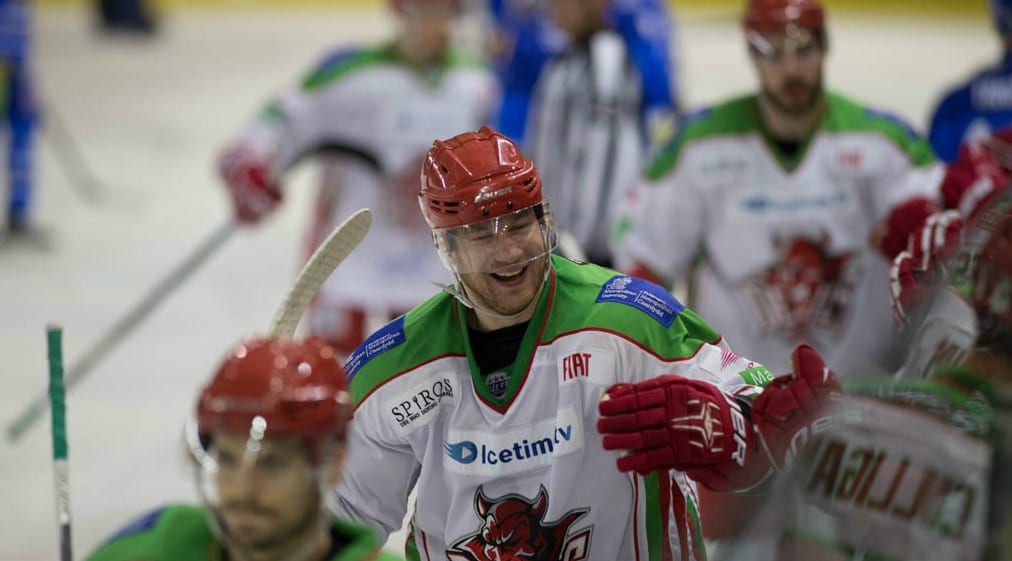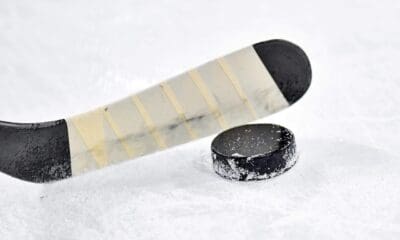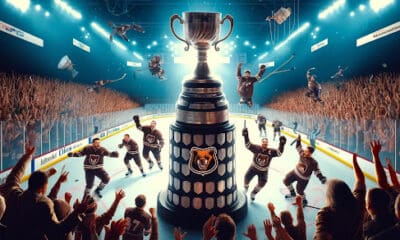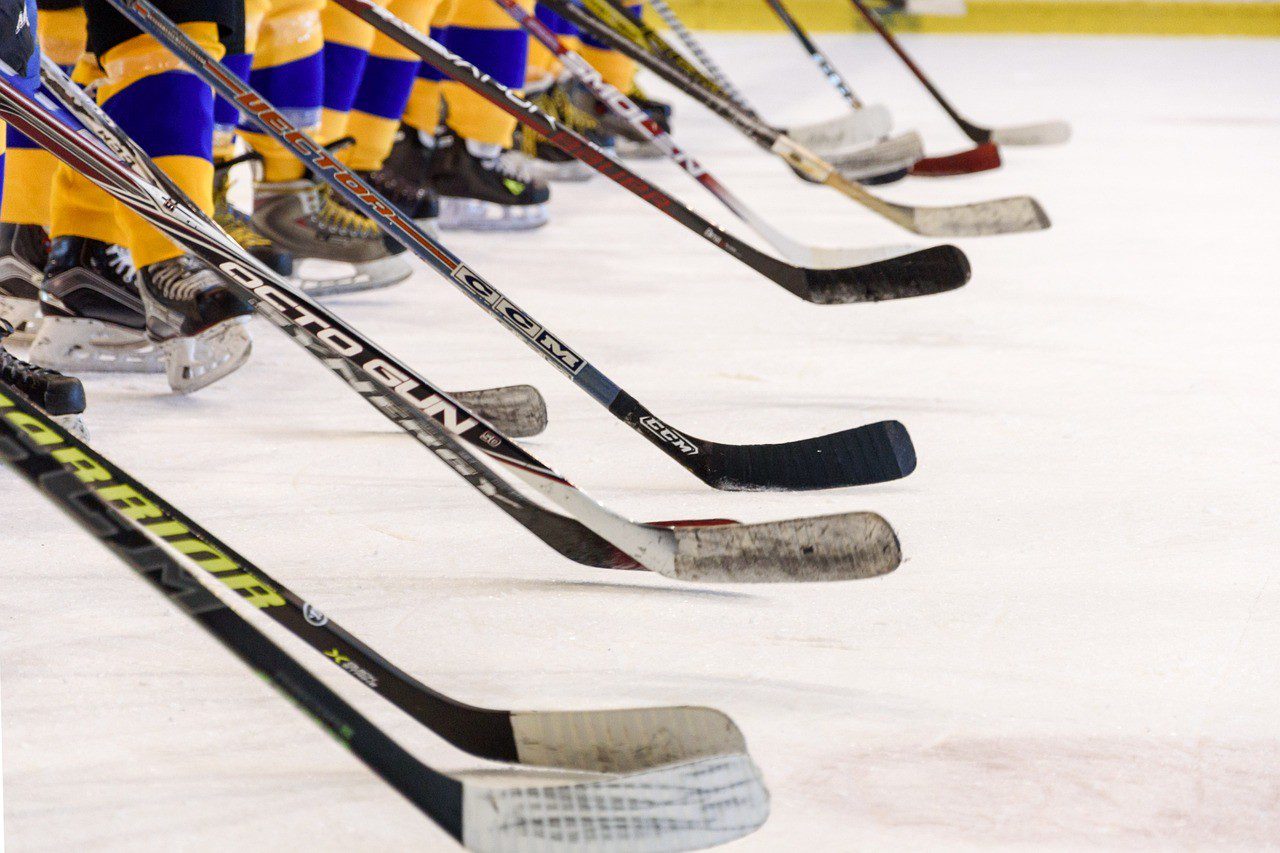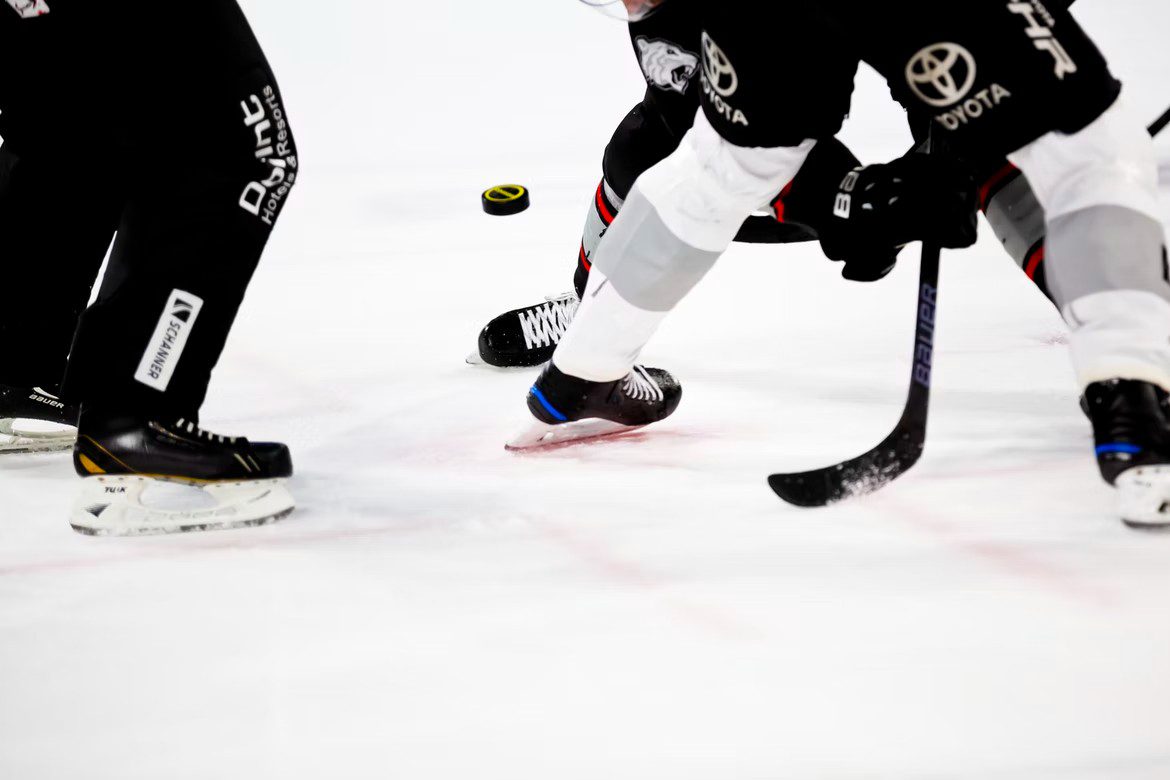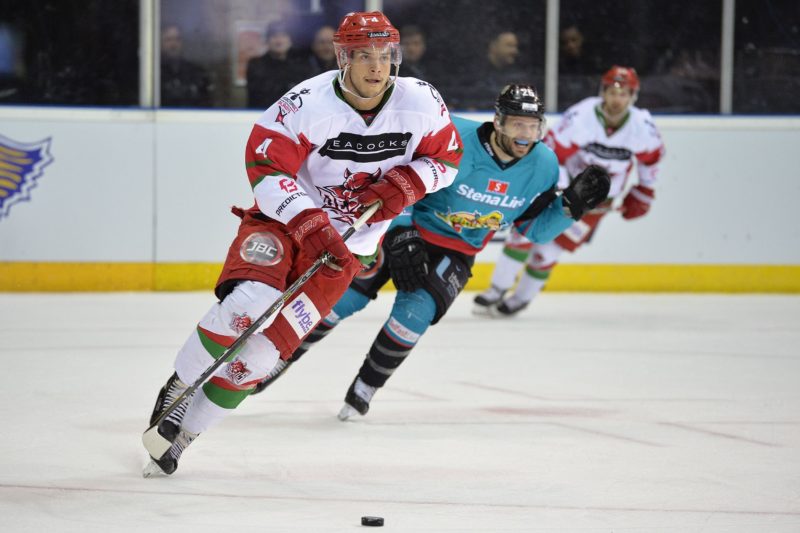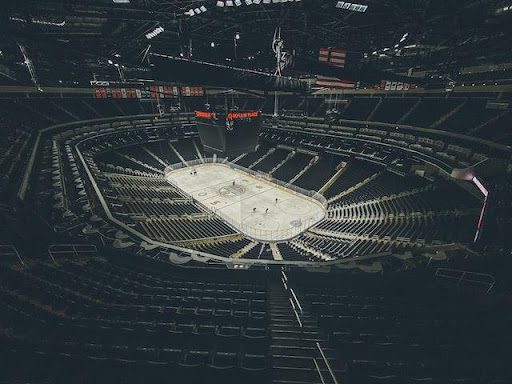As Cardiff Devils look forward to their 30th season in British Ice Hockey, hopes are high in Wales.
Devils’ Challenge Cup win in 2014/15 ended a long wait for silverware and the organisation believes it has its best-ever roster as it bids to land the Elite League title after going so close in the past two campaigns.
As the Devils began their warm-up games with two exhibition matches against Medvescak Zagreb of the KHL, GM Todd Kelman spoke about his hopes for the coming season, why the prospect of KHL in London can only boost British hockey and where the Elite League may be going wrong in developing home-grown talent.
“This year, we have to sell tickets”
The opening of Ice Arena Wales, a brand new 3,000-seat home for the Devils in Cardiff’s international sports village, has raised the game for the club off the ice.
Meanwhile, the current roster is aiming to go one better than last year and lift the Elite League title. But better facilities and enhanced expectations mean the club has to work harder to reach new fans.
“The fanbase in Cardiff is passionate,” Kelman said. “They know their hockey, they’ve been watching for 30 years.
“Before the only limit was the arena, but this year we have to sell tickets. Last year we only had 2,000 seats – it felt like we put them on sale and it basically sold out.
“This year, especially right now in August against a team from the KHL, people assume we will sell out. But in this country, especially when it’s sunny outside, you have to work to sell those tickets.
“This is only my third season in Cardiff and I love it here. I love the passion the fans have and the knowledge they have. It’s definitely on the up and up, and we’re hoping to build on that.
“If we weren’t playing a KHL team first we’d be talking about how good our team looks, but it’s kinda been overshadowed by having these stars out there.
“We think it’s the best team we’ve ever put together in card and we think we have a chance to do something special in the Elite League, but it’s tough.
“We stepped on the ice and we thought ‘man, we look good’ and then we watched Zagreb and it was a sharp intake of breath. We saw how much better it still could be.”
“The only city in the UK that could ever have a KHL team is London”
The announcement in July that IHUK had no objections to a possible KHL franchise in London got British hockey excited at the prospect of welcoming Europe’s biggest league to the country.
While any British team is still a long way off – the KHL has previously had plans for teams in Sweden and Milan, neither of which came to fruition – Kelman is convinced that the capital would be a good match for the league, and that the KHL would help promote the game in Britain.
“It’s interesting that people think when the NHL or the KHL comes across, everyone will flock to see it,” he said.
“But it’s not like that, as we learned when we staged an international game with the Bruins in Belfast. People are quite clan-like in their support and I don’t think Devils fans will suddenly switch allegiances and go drive up to London to watch whatever KHL team they have there.
“There are some owners in our league who don’t like the idea but I’m not one of them. I personally think it would be good for our league and good for hockey generally in the UK.
“We’ve always had this stumbling block where we don’t have a team in the capital. I think it would be great for the KHL, a real smart move to get a team there.
“The only city in the UK that could ever have a KHL team is London. It’s the best city in the world – London is twice as good as New York.
“As someone in hockey management in the UK, I’m not worried about it at all. If anything it will just raise the media profile for the whole game.”
Kelman’s enthusiasm for the KHL only grew during the week that Medvescak spent in Cardiff.
“It’s been a great chance for us to learn from a team in one of the best leagues in the world,” he added.
“We were filming all their practices so we could take something away and maybe use it during our season. We are all really excited, and we were sponging off these guys all week.
“I can’t say enough about the guys from Zagreb. Our coach, Andrew Lord (above), has been on the ice with them every night.
“Their coaching staff, Gordie (Dwyer), Connor (Cameron) and Dylan (Beston) have all been fantastic.
“On a couple of nights they even stayed late to take some junior sessions with our kids. The players stayed out and worked with the kids too, which was great. They didn’t have to do that and it was a cool experience for our younger Devils.”
“It feels like we’ve given up on British talent”
While there are positive things about the Elite League, and hopes that a KHL franchise could boost British hockey further, the fate of the GB national team is an on-going concern.
For Kelman the problems come from a lack of funding for the game as a whole on a nationwide level and a short-sighted emphasis on imports at the top of the domestic game.
“In a lot of countries the leagues and the top teams are outperforming the national program and I think the Elite League is like that,” he said.
“We need to improve our national program but we go up against countries where their head coach is making a couple hundred grand a year while ours is working for free and coaching a club team all year.
“Our players come and play for free – they don’t get bonuses if they win medals. I’m not even talking about programs like the USA or Canada, I’m talking about the countries that GB plays again.
“They are facing people with governments that have a lot of money to put into it and want to raise the level of the national program. Unfortunately ice hockey in Britain has never been on the government radar, yet it still has a massive following here.”
As for the Elite League, which has added an extra import this season to bring the total to 14, Kelman is concerned that the priorities are wrong … and potentially unsustainable.
“The league itself has been adding imports and adding imports – it’s almost a boardroom decision,” he said.
“I’m one of the ones in that boardroom, but I’m against it. I’d like to keep import levels down and develop British talent because I think we could do that.
“As an organization it feels like we’ve kind of given up on British talent. Back when the Elite League started we talked about having 10 imports, then in a few years we’d be down to five.
“Now, all of a sudden, it’s up to 14. It’s going in the wrong direction. It was a stretch at 13 last year, this year it’s 14 and it seems that the 14th import is always a tough guy.
“We were trying to get away from that reputation of being the last tough league out there and now we’re going back to it.
Today Kelman is concerned that the failure of Super League could be repeated.
“I played in the Super League and saw it fall apart because there was a bunch of owners competing to see who could buy a championship,” he said.
“I played on teams in Belfast that won the league and lost £500,000 and for a minor league sport like UK hockey that’s not sustainable.
“Our clubs are bums on seats organisations and we need to sell X amount of tickets and attract X amount of sponsorship just to survive.
“If wages go up 20% we don’t have the capacity to sell 20% more tickets and we can’t put prices up 20%.”
(Image permissions: Todd Kelman – Cardiff Devils; Andrew Lord – Adrian Rapps)

